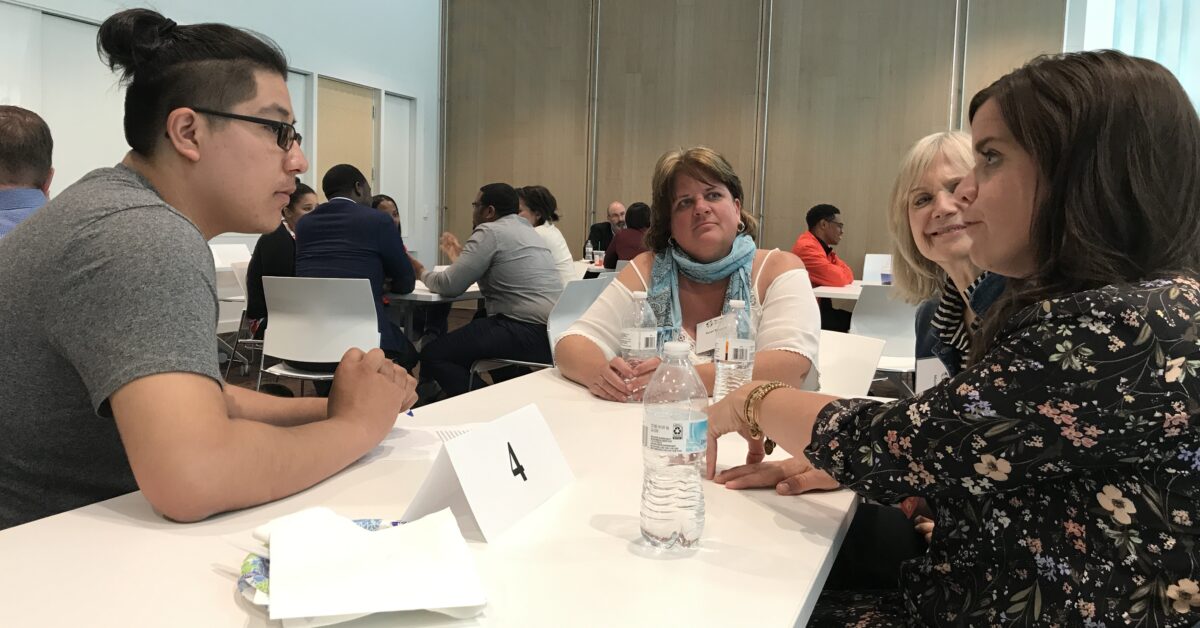After a ‘clueless’ start, a college student evaluates her financial future
June 7, 2017

by Paola Canting, Marketing Intern, Make A Difference – Wisconsin
May 30, 2014 — The day I graduated from high school in Puerto Rico. Graduation brings a lot of changes and new challenges. I was going to great university to study public relations in Milwaukee, far away from home. It was a new adventure, and I was embracing it with open arms. I was nervous of course but I had it all figured out … or so I thought.
 From the very beginning I knew I would have to take out loans to finance my education. My parents had given me a limit on the amount of money they could pay for college. I was also aware that I would have to get a job to take care of personal expenses. The first two years of college I didn’t worry about money. I even had a meal plan, so I didn’t have to spend money on groceries. And those college loans? They seemed to be in a far-off future.
From the very beginning I knew I would have to take out loans to finance my education. My parents had given me a limit on the amount of money they could pay for college. I was also aware that I would have to get a job to take care of personal expenses. The first two years of college I didn’t worry about money. I even had a meal plan, so I didn’t have to spend money on groceries. And those college loans? They seemed to be in a far-off future.
But now I am about to enter my senior year of college. These loans have gone up with the passing years. I no longer reside in the dorms or have a meal plan. My parents cover my rent but my personal expenses now include paying for electricity and groceries. It feels like I didn’t know what I had gotten myself into. I have a lot of crippling questions about how am I going to pay off these loans.
On top of that, I spend time thinking about life after graduation. “What is a good starting salary?” … ”How much should I pay for rent once I graduate?” … ”How do I start to save money with these responsibilities that I will have from the moment that I receive my diploma?”
In high school we are educated in classic topics such as science, math, history, health, etc. But did it ever occur to anyone that financial educations is just as important? The financial transition from high school to college is very hard. College is expensive and a lot of people don’t have any other way to pay for school than with loans. Furthermore, around this time most people have no savings and they’re starting their careers living paycheck-to-paycheck, making somewhere between a small salary and minimum wage. Some people end up taking out credit cards to pay for stuff — without knowing anything about credit or credit scores.
One of the main things that drew me to this internship at Make A Difference was their mission to fill the gap in financial education for teenagers. At a recent event, I had the chance to hear from students in their Money Coach program (like Jose, pictured at right with Pam Evason, Marilyn Beug and Karen Maynard.) I wish I had participated in something like Money Coach, in which they give you a mentor and teach you how to save money and plan ahead. I would be much more informed and have money in my savings account instead of the $40 that I have right now. I wouldn’t be clueless about money.
As I prepare to graduate next year, I have more financial questions than ever before. And it seems that I will have to figure it out on my own. For this reason I believe that what Make a Difference does is important. Teaching students about how to use their money, how to save and how to plan for the future is crucial to have a better financial life as you grow older.
